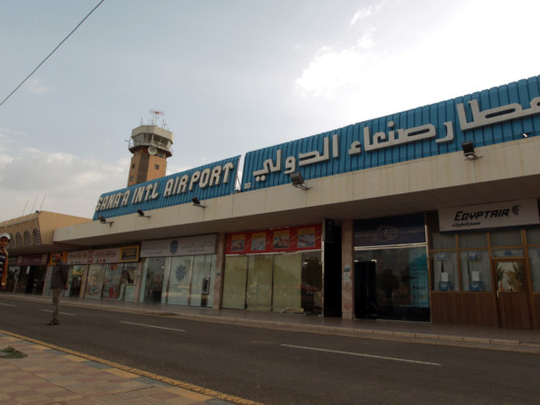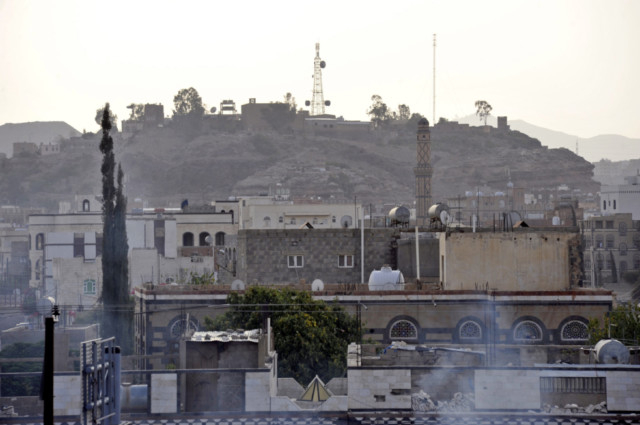
Sana’a: Yemeni Al Houthi rebels agreed Friday to stop fighting Islamists and troops north of Sana’a which has killed dozens this week, in their campaign for a new government and greater political clout.
The fighting became so intense that, by Friday, international airlines suspended flights in and out of the nearby airport and state television stopped broadcasting after coming under fire.
“Rebel chief Abdul Malek Al Houthi designated two of his deputies to sign a deal in Sana’a in the coming hours, or tomorrow,” a negotiator linked to UN-sponsored peace efforts told journalists in Al Houthi’s northern stronghold of Saada.
Details were not immediately available on the deal, which appeared to be the fruit of discussions UN envoy to Yemen Jamal Benomar has had with Al Houthi since flying to Saada on Wednesday.
Government representatives also participated in those talks.
The northern area of Sana’a where the airport is located was the scene of fierce clashes on Thursday in which nearly 40 people on both sides were killed, according to various sources.
The rebels, known as Al Houthis or Ansarullah, appear more determined than ever to step up military pressure on Sana’a to secure their demands: a new government and more power for their community.
The Civil Aviation Authority, in a statement issued overnight, had said international carriers had suspended flights to Sana’a for 24 hours because of the latest violence.
But Turkish and Jordanian aircraft that were already en route before the suspension came into effect were able to land at night and leave again, the official Saba news agency reported.
“Arab and foreign airlines have decided to suspend their flights to Sana’a for 24 hours because of developments in the capital,” said the statement carried by Saba.
The move could be extended or reconsidered depending on the security situation.
The rebels, who have been camped north of Sana’a for weeks, belong to the Zaidi Shiite community, a minority in mainly Sunni Yemen but a majority in the northern highlands.
They have battled the government for years from their heartland of Saada in the remote north, complaining of marginalisation since the rule of now toppled autocratic president Ali Abdullah Saleh.
This week, they rejected an offer from President Abd Rabbo Mansour Hadi to name a new prime minister and reduce a controversial fuel price rise, two of their core demands.
Analysts say the rebels are trying to establish themselves as the main political force in the region.
The wave of violence intensified on Thursday with the advance of rebels on Shamlan suburb north of the capital, and through the night on a Thalathin Street linking the area to Imam University, which is run by Islamist fundamentalists.
The fighting then spread to offices of Yemen’s state television, which was hit by mortar fire.
On Friday, its three channels were off the air.
“Transmissions have ceased because of incessant fire from Al Houthis since Thursday evening,” an official at the broadcaster said.
The authorities said the rebels managed to advance and “take control of positions of the security forces and the army at Shamlan” and along Thalathin Street.
The country’s high security commission warned the rebels to withdraw, with a spokesman quoted on Saba as saying that “legal action... will be take to recapture these positions”.
Early Friday, residents said government forces managed to reclaim some of the positions they lost earlier.
Benomar has been pressing Al Houthi to ease the crisis and met him late into the night without any initial success, sources close to the negotiations said.
Representatives of President Hadi were also holding separate talks with Al Houthi in Saada.
Hadi has already agreed to involve the rebels in the formation of a new government to replace the unpopular administration that imposed austerity measures, including a fuel price hike, earlier this year.
But the rebels are also demanding posts in key state institutions.
The crisis has exacerbated an already difficult transition since Saleh’s ouster, which has also seen mounting secessionist sentiment in the formerly independent south and persistent attacks on the security forces by Al Qaida.
- AFP













